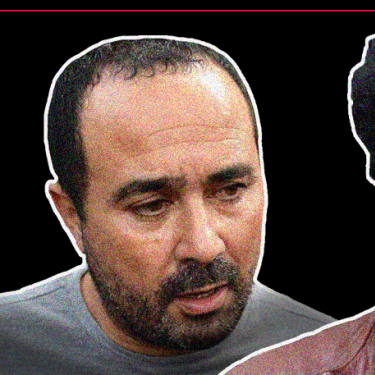Increasingly authoritarian Morocco urged to free journalists on Throne Day

On the eve of Throne Day in Morocco, Reporters Without Borders (RSF) calls on King Mohammed VI about the alarming state of press freedom in his country and requests the release of imprisoned journalists Taoufik Bouachrine, Soulaimane Raissouni and Omar Radi.
Morocco is about to celebrate the anniversary of the king’s accession to the throne on 30 July 1999, an event known as Throne Day. But, as RSF already pointed out on last year’s Throne Day, the right to report the news is under attack in his country as a result of journalists being arrested, jailed and subjected to judicial intimidation, as well as moves against the National Press Council in recent months.
“The number of attacks on the freedom of journalists and the media is a sad indicator that, alas, confirms Morocco’s growing authoritarianism. What with journalists in prison, self-censorship, and a regression in the media’s legislative and organisational framework, press freedom has no reason to celebrate in Morocco. We call on the country's authorities to use Throne Day on 30 July as an occasion to release the imprisoned journalists Taoufik Bouachrine, Soulaimane Raissouni and Omar Radi.
Bouachrine, the founder and owner of the newspaper Akhbar Al-Yaoum, Raissouni, the newspaper’s former editor, and Radi, an investigative reporter, are in prison for practising journalism in a completely independent way.
Victims of political, judicial and media persecution, they were all jailed on trumped-up rape and sexual assault charges. Bouachrine was sentenced on appeal in October 2019 to 15 years in prison, Raissouni in February 2022 to five years in prison, and Radi in March 2022 to six years. Morocco’s highest court, the court of cassation, rejected Bouachrine’s final appeal in 2022, and rejected the final appeals of Raissouni and Radi earlier this July.
Persecuted judicially and in prison
The regime’s vindictive behaviour does not stop when they have been jailed, quite the contrary. Raissouni and Radi have been subjected to all sorts of harassment and intimidation since they were imprisoned. Bouachrine has also been the victim of humiliating treatment by prison officials.
Hanane Bakour, a journalist who has reported for such media outlets as Akhbar Al Youm, Al Massae and Al Jarida Al Oukhra, is currently being subjected to judicial intimidation, as a result of the complaint brought against her by Prime Minister Aziz Akhannouch’s party, the National Rally of Independents (RNI), in connection with a Facebook post.
Bakour is being held hostage by arbitrary judicial proceedings that are not progressing. A court in the city of Salé has postponed the case ten times. The latest postponement was on 24 July. The case is now scheduled to be heard on 25 September.
Moves against the National Press Council
The past few months have also been marked by a law – approved by the upper house on 18 July following its passage through the lower house – that deals a major blow to press freedom in Morocco, by curtailing the powers and autonomy of the National Press Council, a self-regulatory body that had abolished the government’s grip on the media.
The new law transfers the Council’s prerogatives to a temporary committee with new, unelected members – a move denounced by RSF in April as a flagrant attempt to reinforce the government’s control over the media.
